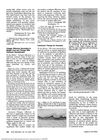 13 citations,
December 2010 in “Archives of Dermatology”
13 citations,
December 2010 in “Archives of Dermatology” Minoxidil use can cause trichostasis spinulosa in long-term hair loss patients.
 13 citations,
September 1986 in “Archives of Dermatology”
13 citations,
September 1986 in “Archives of Dermatology” Women with more 3α,17β-androstanediol glucuronide compared to sex hormone binding globulin are more likely to have female pattern baldness.
[object Object]  11 citations,
September 1997 in “Archives of Dermatology”
11 citations,
September 1997 in “Archives of Dermatology” Reduced androgens linked to kinky hair disorder and hair loss; 5a-reductase inhibitors may help.
 11 citations,
May 1976 in “Archives of Dermatology”
11 citations,
May 1976 in “Archives of Dermatology” Starving yourself can cause hair loss, but stopping the diet can improve it.
 10 citations,
June 2011 in “Archives of Dermatology”
10 citations,
June 2011 in “Archives of Dermatology” Finasteride caused blisters on hands and feet.
 10 citations,
January 1977 in “Archives of Dermatology”
10 citations,
January 1977 in “Archives of Dermatology” Androgenetic Alopecia is commonly known as male or female pattern baldness.
 10 citations,
April 1976 in “Archives of Dermatology”
10 citations,
April 1976 in “Archives of Dermatology” A woman's significant hair loss was linked to rapid weight loss and hormone injections.
 7 citations,
June 2015 in “JAMA Dermatology”
7 citations,
June 2015 in “JAMA Dermatology” Finasteride's potential harms are hard to accurately measure.
 4 citations,
November 2011 in “Archives of Dermatology”
4 citations,
November 2011 in “Archives of Dermatology” Hamilton scale imprecise, hair shaft diameter decreases, stem cell transplant regrows hair, ECP ineffective for alopecia areata universalis.
 4 citations,
May 1976 in “Archives of Dermatology”
4 citations,
May 1976 in “Archives of Dermatology” Starvation diets can cause significant hair loss.
 3 citations,
January 1977 in “Archives of Dermatology”
3 citations,
January 1977 in “Archives of Dermatology” Unable to summarize document.
2 citations,
January 2007  2 citations,
January 1997 in “Archives of Dermatology”
2 citations,
January 1997 in “Archives of Dermatology” Alopecia areata can regrow hair in a pattern similar to androgenetic alopecia.
 2 citations,
March 1988 in “Archives of Dermatology”
2 citations,
March 1988 in “Archives of Dermatology” Minoxidil can help regrow hair or slow down hair loss, but results vary among individuals.
 2 citations,
November 1987 in “Archives of Dermatology”
2 citations,
November 1987 in “Archives of Dermatology” Minoxidil solution helps regrow hair in men with hair loss, with most improvement seen at 12 months and effects lasting over 30 months.
 1 citations,
January 1997 in “Archives of Dermatology”
1 citations,
January 1997 in “Archives of Dermatology” Hair loss from alopecia areata can sometimes regrow in a pattern similar to androgenetic alopecia.
1 citations,
December 1995 in “Archives of Dermatology” The combination of topical minoxidil and oral finasteride improved hair regrowth in a man with advanced hair loss.
1 citations,
May 1989 in “JAMA” Minoxidil can help hair growth but may not always look cosmetically good.
 1 citations,
April 1976 in “Archives of Dermatology”
1 citations,
April 1976 in “Archives of Dermatology” Sudden weight loss can cause significant hair loss, and using colchicine on the skin for psoriasis may be unsafe.
 1 citations,
February 1976 in “JAMA”
1 citations,
February 1976 in “JAMA” Haloperidol effectively treated hemiballismus, but spontaneous improvement wasn't ruled out; rapid weight loss can cause hair loss with good regrowth chances.
1 citations,
February 1971 in “JAMA” Triamcinolone acetonide helps scalp grafts grow hair successfully.
[object Object] January 2018 in “JAMA dermatology” Facial papules can occur with lichen planopilaris.
 June 1996 in “Archives of Dermatology”
June 1996 in “Archives of Dermatology” Using a mix of finasteride and minoxidil can significantly regrow hair in men with pattern baldness.
 June 1996 in “Archives of Dermatology”
June 1996 in “Archives of Dermatology” Minoxidil, tretinoin, and finasteride may help hair regrowth in mild to moderate androgenetic alopecia.
 October 1990 in “Archives of Dermatology”
October 1990 in “Archives of Dermatology” Hair loss and growth can be accurately measured using computer-assisted counting.
 March 1988 in “Archives of Dermatology”
March 1988 in “Archives of Dermatology” Topical minoxidil may not improve the appearance of balding men, according to a letter in this document.
 March 1988 in “Archives of Dermatology”
March 1988 in “Archives of Dermatology” Minoxidil therapy can help with hair regrowth, but results vary and some people are just happy to stop further hair loss.
 64 citations,
February 1995 in “Journal of The American Academy of Dermatology”
64 citations,
February 1995 in “Journal of The American Academy of Dermatology” Lithium therapy may cause skin problems like hidradenitis suppurativa and other side effects, which can improve after stopping the medication.
 1 citations,
June 2023 in “Dermatology and therapy”
1 citations,
June 2023 in “Dermatology and therapy” People with Alopecia Areata have more herpes simplex infections but similar rates of cancer, blood clots, and heart disease compared to those without it.
 1 citations,
June 2023 in “Journal of Dermatology”
1 citations,
June 2023 in “Journal of Dermatology” People with Alopecia Areata are more likely to have autoimmune diseases, inflammatory diseases, and mental health issues like anxiety and depression.

























